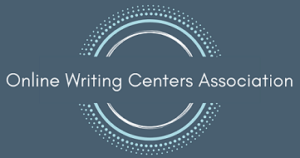Abstract
This dissertation analyzes the suggestions for revision sent by on-line writing center consultants in the United States to advanced EFL students in Argentina and examines the students’ reactions to this type of feedback. Previous ESL/EFL writing process research, specifically in the area of revision, has explored issues such as peer critique and teacher feedback. Quite a few studies have focused on learners’ attitudes to feedback, while others have paid particular attention to feedback incorporation during revision work. Most of these studies, however, have been conducted in regular classes where either ESL/EFL instructors or peers responded to drafts. Results from these studies tend to be inconclusive and cannot be applied to specific monolingual settings. Furthermore, very few studies have investigated how having a real audience of native speakers of Enghsh, and receiving suggestions from them, may affect ESL/EFL writing. The research conducted for this project was an attempt to explore this issue.
This study follows a case study methodology. During the 1997 academic year, one group of advanced EFL students taking a literature course at the teacher-training college “Juan Zorrilla de San Martin” (Cordoba, Argentina) e-mailed their short essays to and received feedback on two occasions from the writing consultants at the Texas Tech University On-line Writing Center. The participants’ attitudes toward these electronic exchanges were analyzed through survey answers and interviews. The types of comments from the On-line Writing Center consultants and the textual changes made by the students were coded and subsequently examined employing three different taxonomies created for the purposes of this study.
Results show that, despite a few difficulties with the technical implementation of the project, these EFL students benefited from interaction with native-speaker consultants via e-mail exchanges. These students not only appreciated the feedback received but also employed a high percentage of comments to their advantage by making changes that enhanced the quality of their texts. Although a high percentage of the revisions involved formal or structural problems—as opposed to global or macrostructural concerns—the number of modifications the students incorporated in their final drafts supports the use of on-line writing center responses during the revision stage in EFL settings.
Citation Information
Type of Scholarship: Dissertation
Author: Liliana Beatriz Anglada
Year of Completion: 1999
Institution: Texas Tech University
